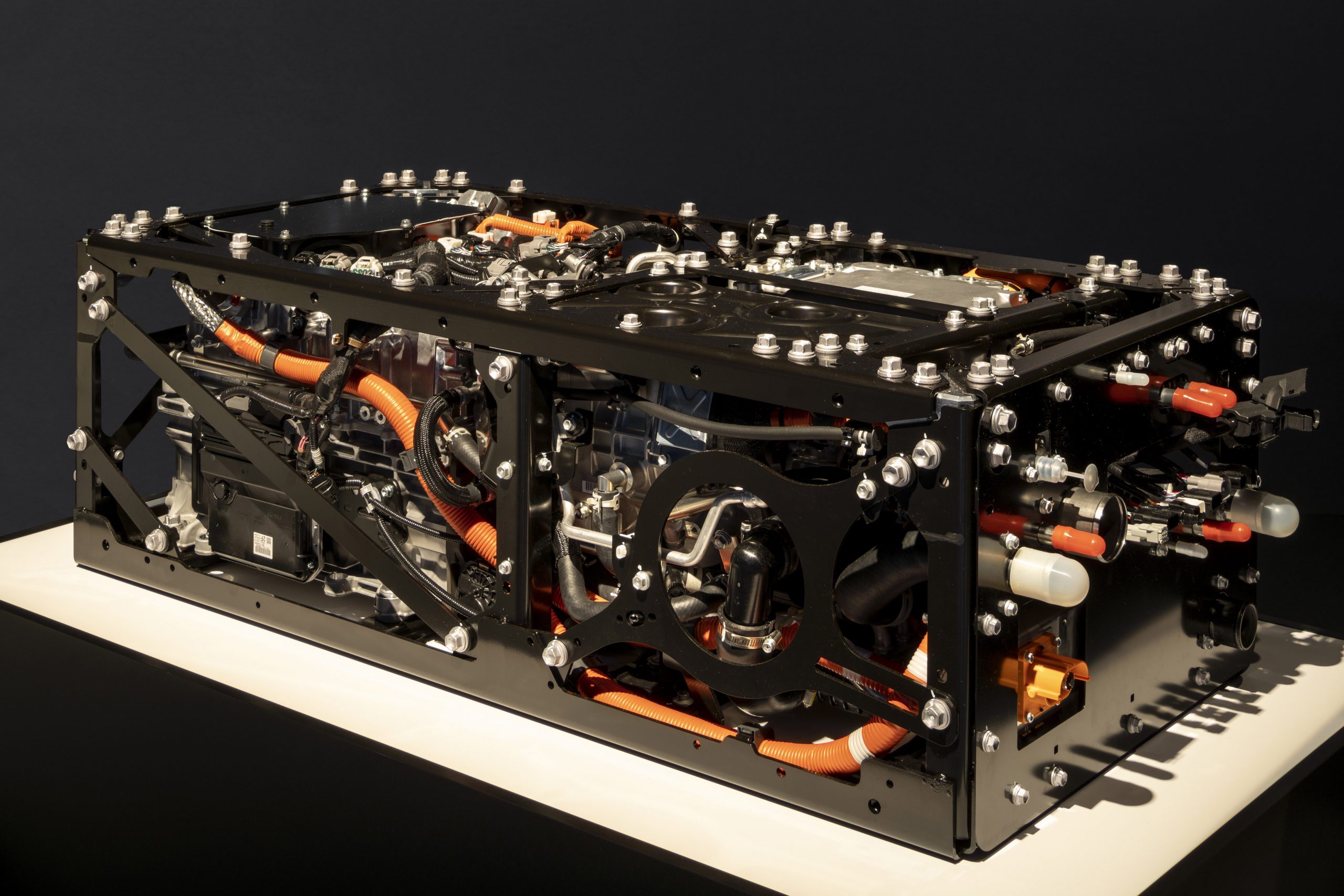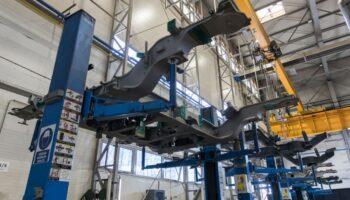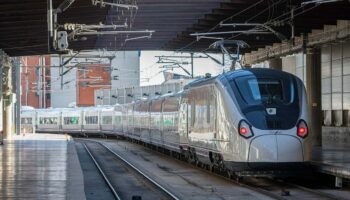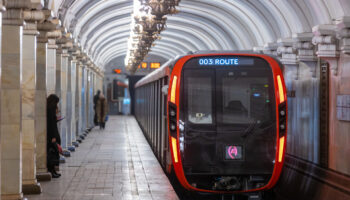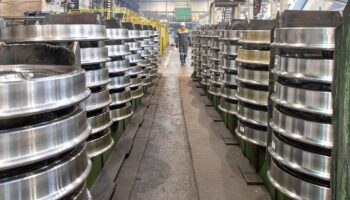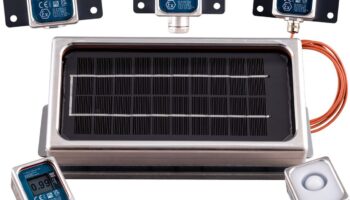Spain: Toyota delivered the first 3 modules to the CNH2 hydrogen technology center in the country. The hybrid traction project for regional trains is being implemented by the FCH2Rail consortium.
At the first stage, bench tests of three modules together with batteries should be carried out. In mid-February, it is planned to install the entire batch of 6 modules on a three-car Civia 463 train manufactured by CAF. It is planned to implement hybrid traction (hydrogen + catenary) on a train.
According to Toyota, the second-generation modules have a 30% increased range compared to the previous one. They are based on fuel cells used in the assembly of Toyota Mirai cars. The manufacturer is planning to integrate modules into various vehicles, including trains, cars, trucks and ships. The modules are available in two types: vertical and horizontal, both with rated power from 60 kW to 80 kW. Thanks to their compact design (for example, the dimensions of the horizontal module are 127 cm x 63 cm x 41 cm), they will be installed under the roof of the train.
The FCH2Rail consortium implementing this project, in addition to Toyota and CAF, also includes the national railway operator Renfe, the infrastructure company Adif and other participants. In November 2020, FCH2Rail received a €10 mln grant from the The Fuel Cells and Hydrogen Joint Undertaking Fund (FCH JU), which is to cover about 70% of the total project cost.
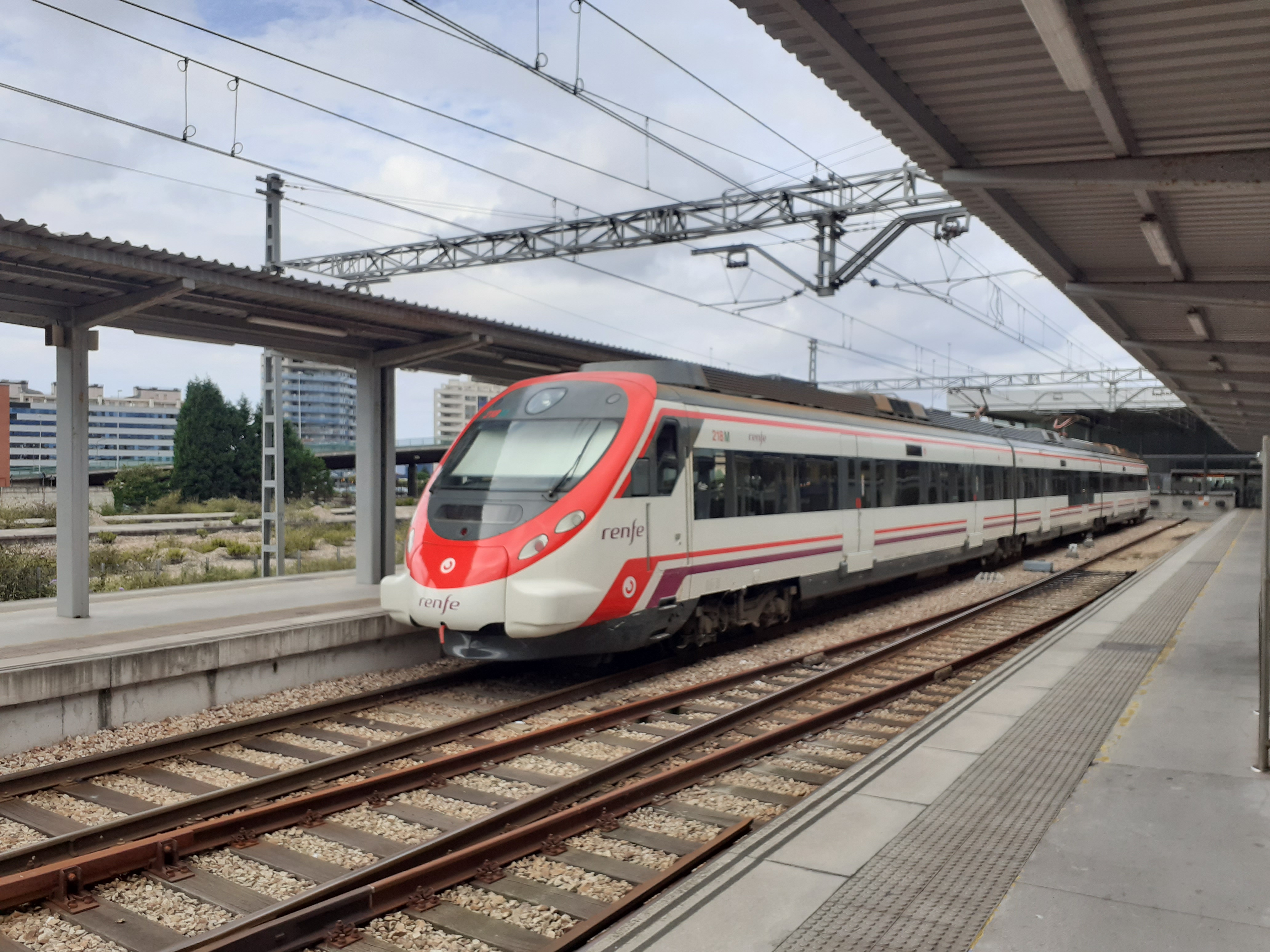 Civia 463 train by CAF at Gijón train station, Spain. Source: commons.wikimedia.org
Civia 463 train by CAF at Gijón train station, Spain. Source: commons.wikimedia.org
Alstom’s Coradia iLint, the most common hydrogen train to date, uses two fuel cell modules of 200 kW each, according to VDE. Their manufacturer is Hydrogenics (part of Cummins), which in the middle of last year planned to start mass production of such modules.
Modules of similar capacity are also produced by Ballard. It participates in projects to create a hydrogen train of Siemens Mobility and to modernize diesel locomotives for hydrogen traction by Canadian Pacific (CP). Last week, as part of the expansion of this project from one to three locomotives, Ballard received an additional order from CP for eight 200 kW hydrogen modules. Ballard already delivered 6 of these modules to the operator last year.



